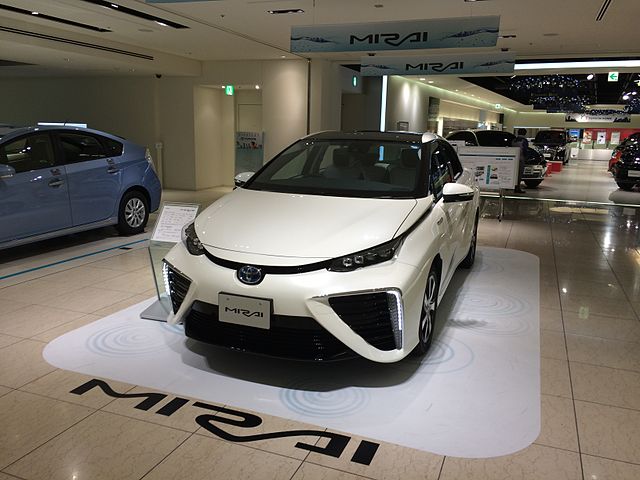Fuel Cell Car Technology – What’s Holding Them Back?

Fuel cell cars are zero-emission vehicles that are powered by a fuel cell. The most common way that this works is that there is a hydrogen fuel cell in the car, which powers an electric motor that propels the vehicle. Since hydrogen combines with oxygen in the air, to create only water and heat, it creates no greenhouse gases or other pollutants, which is ideal from an environmental standpoint. Here’s what you need to know about fuel cell car technology.
How fuel cell cars work
A fuel cell is like a battery, in that it is a way of storing energy to use later. Like batteries, fuel cells can be used to generate electricity which can power the car. The difference is that instead of recharging a battery, you add power by refilling the fuel cell with hydrogen. There are a few different types of these fuel cells available, including solid oxide fuel cells, direct methanol fuel cells, and PEM (polymer electrolyte membrane) fuel cells.
Benefits of fuel cell cars
The biggest benefit of fuel cell cars is the fact that they don’t produce any pollution. Currently, most of the petroleum used in the United States is for motor vehicles, and cars and other vehicles produce more than 60 percent of the carbon monoxide, and about 20 percent of the greenhouse gases. As opposed to gas or oil, fuel cells don’t need a conventional fuel, and thus it can reduce economic dependence on countries that produce oil leading to increased energy security for average drivers.
Fuel cell cars have zero emissions, so could result in cleaner air. Creating the hydrogen that is used in the fuel cells may still create some pollution, depending on the process used. One area where fuel cells are important is for indoor applications like forklifts, where air quality in a confined space is important.
Current state of fuel cell car technology
Fuel cells are being used, or in development, for all types of vehicles. The most common current use is for forklifts, but there are also designs in various stages of testing or production for cars, buses, motorcycles, and even submarines. There are not any commercially available fuel cell cars yet, however more than 20 different prototypes and demonstration models have been released. Fuel cell powered electric cars have been driven over 3 million miles, with 27 thousand hydrogen refuelings, so the technology is well tested. Among the automakers and car models that have been tested are the following:
- Toyota Mirai
- Hyundai Tucson
- Mercedes-Benz F800
- Nissan X-Trail FCV
- Volkswagen Caddy-Maxi HyMotion
- Audi Q5
- Mazda 5 Hydrogen RE Hybrid
Several automakers have announced that they plan to bring out a production model fuel cell car in 2015. Of course, we can’t really know for sure if that’s actually going to happen.
Infrastructure for hydrogen fueling
As of 2014, there are only ten publicly available hydrogen fueling stations for cars in the United States, and most of these are in southern California. The shortage of refueling places is currently a major obstacle to mainstream use. In 2014, California allocated the funds to build 28 more stations. Japan has plans to build 40 new hydrogen stations, and Germany has announced plans to build 50 stations.
Issues with fuel cell cars
Some critics question whether hydrogen will ever be as cost effective or efficient for powering cars as other zero-emission technologies. Fuel cells have fallen rapidly in cost, dropping about 80% since 2002. However, production volumes need to increase in order to deliver cost-effective power. Some analysts expect this to limit use to special purpose vehicles such as forklifts. Other experts question the value of storing energy as hydrogen, and then using the hydrogen to create electricity, rather than just using the electricity to power cars directly with auto batteries.
Another concern is the emissions created during the production of hydrogen. A lot of hydrogen is created with steam reformation, which produces carbon emissions. Unless the hydrogen is created with renewable energy, it cannot truly be a zero-emission technology. In spite of everything, one thing’s for sure – fuel-cell car technology is a concept that sooner or later will hit the market. Toyota for example, is greatly involved in this process and we’re certainly expecting the company to come up with incredible cars sometime in the future.
Would you like to receive similar articles by email?





